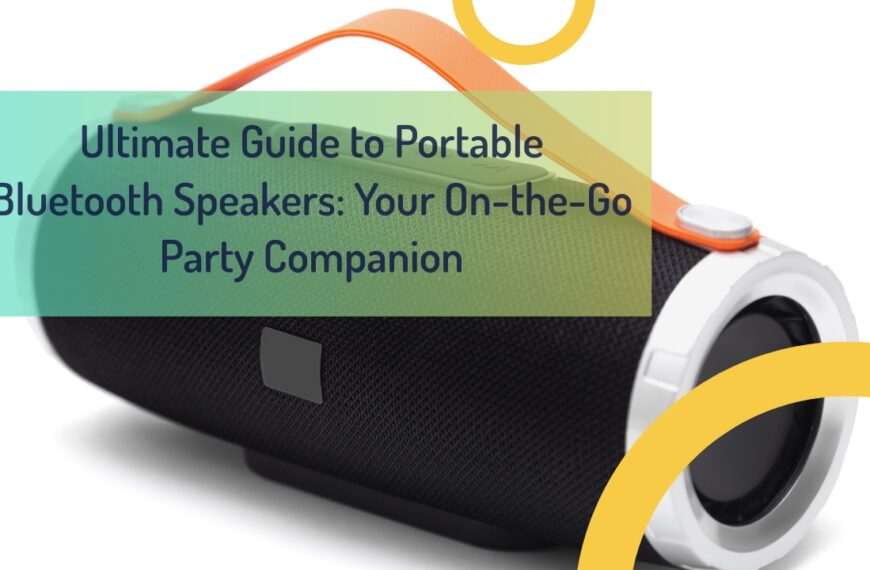Since their invention, smart devices have advanced significantly, going from simple communication tools to complex, multipurpose gadgets. Sending & receiving text messages was the main function of mobile phones in the beginning. Nonetheless, owing to the swift progress in technology, smartphones presently provide an extensive array of features, such as social media access, internet browsing, gaming, photography, and much more. Cutting-edge technologies like artificial intelligence, augmented reality, & machine learning have been incorporated into smart devices, propelling their evolution & making them into potent tools that can improve many facets of our lives.
Key Takeaways
- Smart devices have evolved from basic functions to advanced capabilities, offering a wide range of features and services.
- Smartphones have significantly impacted daily life, revolutionizing communication, entertainment, and productivity.
- Home automation allows users to control their environment with a touch, making tasks more convenient and efficient.
- Smart devices simplify tasks such as shopping and health monitoring, making everyday activities more manageable.
- Smartphones play a crucial role in personal finance, offering tools for budgeting, banking, and investing on the go.
With ever-improving features that were previously unthinkable, smart devices are becoming more and more ingrained in our daily lives as they continue to advance. For instance, users can now take amazing pictures & videos while on the go thanks to smartphones’ high-resolution cameras, which can rival those of professional photography gear. Also, voice commands can now be used for a variety of tasks, including controlling smart home devices & setting reminders and alarms, thanks to the integration of virtual assistants like Siri, Google Assistant, and Alexa. The advancement of wearable technology, including fitness trackers and smartwatches, has resulted from the development of smart devices.
These gadgets offer sophisticated health monitoring features & easy smartphone integration. Ultimately, the development of smart devices has completely changed the way we work, communicate, and amuse ourselves, making them an essential component of contemporary life. The way we communicate, amuse ourselves, and remain productive has all changed significantly as a result of smartphones. With a plethora of communication channels including voice calls, text messaging, video calls, and social media platforms, smartphones have completely changed the way we communicate with each other.
Because of this, communicating with friends, family, and coworkers across distances is now simpler than ever. In addition, smartphones have evolved into indispensable entertainment devices, providing users with access to a wide range of multimedia content including e-books, music, movies, and games. Smartphone users can now enjoy entertainment on-the-go while traveling abroad or on their commute to work thanks to the device’s portability & convenience.
Smartphones have greatly impacted productivity by granting access to a vast array of productivity tools and applications, in addition to communication and entertainment. Smartphones have evolved into vital tools for professionals trying to stay efficient and organized, from email and calendar management to document editing and project management. Further enabling more flexibility & mobility is the ability for users to collaborate across multiple devices with ease thanks to the integration of cloud services & collaboration platforms. All things considered, there is no denying the influence of smartphones on day-to-day living; in today’s hectic world, they are indispensable for communication, consumption, and work.
We can now control many aspects of our environment with a single touch thanks to the integration of smart devices and home automation technology, which has completely changed how we interact with our living spaces. Users can now remotely monitor and control devices like security cameras, smart appliances, lighting, thermostats, & more thanks to the widespread adoption of smartphone-based home automation systems. Along with improving convenience, this degree of control also improves home security and energy efficiency. For instance, users can use their smartphones to remotely turn off lights or change the settings on their thermostats, which helps to cut down on energy use & utility costs.
Homeowners can feel more at ease and have more control over their home security when they can watch security cameras and get real-time alerts on their smartphones. Moreover, voice control over one’s surroundings has become even simpler for users thanks to the integration of voice assistants like Google Assistant and Amazon Alexa with home automation systems. Users can carry out tasks like changing the temperature or playing music without lifting a finger thanks to this hands-free approach to home automation.
The easy way that smartphones & home automation technologies work together has made our living areas into smart homes with unmatched comfort, convenience, & security. With their convenient solutions for things like shopping & health monitoring, smart devices have made a lot of tasks in our daily lives easier. Smartphones are now indispensable tools for online shopping, enabling users to explore products, compare prices, and make purchases at any time & from any location thanks to the growth of e-commerce platforms and mobile payment systems. Customers now have access to a vast array of goods and services at their fingertips thanks to the ease of mobile shopping, which has completely transformed the retail sector. To further improve the shopping experience, contactless payment methods & digital wallet integration have made transactions faster and more secure.
Also, by providing a large selection of fitness tracking and health management tools, smart devices have also made health monitoring simpler. Smartphones and other wearable technology give users useful information about their fitness & health, from step counting and calorie tracking to heart rate monitoring and sleep analysis. Because of this, people are now more equipped to take charge of their health by establishing fitness objectives, monitoring their progress, and making wise lifestyle choices.
Also, consumers now find it simpler to obtain medical information, arrange doctor appointments, and even get virtual consultations from the comfort of their homes thanks to the integration of health-related apps and services. All things considered, smart devices have made jobs like shopping and health monitoring easier by providing practical solutions that increase effectiveness & accessibility. Due to the numerous tools and services they provide that make budgeting, banking, & investing easier, smartphones are essential for personal finance management. With the growth of digital payment methods and mobile banking apps, smartphones have become indispensable tools for on-the-go personal finance management.
The use of smartphones to check account balances, transfer money, pay bills, and even deposit checks has made it unnecessary for customers to visit physical bank branches. Mobile banking apps’ accessibility and convenience have revolutionized the way people interact with their finances and given them more control over money management. Also, with the abundance of personal finance management apps available on smartphones, people’s ability to track & budget their expenses has been completely transformed. These apps give users the ability to track their spending patterns, categorize expenses, make financial goals, and create budgets.
Having this degree of financial transparency enables people to manage their money wisely and take steps to meet their financial goals. Also, investment platforms & trading apps that enable users to buy & sell stocks, manage investment portfolios, and stay up to date on real-time market trends have made investing more accessible to a wider audience thanks to smartphones. Unquestionably, smartphones play a crucial role in personal finance since they are now required for banking, investing, and budgeting purposes. Smartphones, with their plethora of features that make navigation, translation, and on-the-go booking easier, have completely changed the way we travel.
Smartphones with integrated GPS and navigation apps like Google Maps and Waze give users access to real-time traffic updates and directions, making it simpler to navigate strange places. Because of this degree of convenience, tourists can now confidently explore new places without worrying about getting lost or stuck in traffic. Also, users can now find surrounding hotels, restaurants, attractions, and other points of interest based on their current location thanks to the integration of location-based services. Also, translation apps that can instantly translate text or speech between languages are available on smartphones, which has made it easier to overcome language barriers when traveling. The ability to read signs in foreign countries & communicate with locals may prove to be especially helpful for international travelers who may face language barriers.
Travelers can easily overcome communication barriers and immerse themselves in new cultures thanks to smartphones’ rapid language translation capabilities. In addition, by providing access to a vast array of options at competitive prices, travel booking apps on smartphones have completely changed the way travelers book lodging, flights, rental cars, and other travel-related services. Travel planning is now easier & more flexible than ever thanks to the convenience of being able to do research, compare costs, and make reservations while on the go. Future developments in artificial intelligence (AI) technology, along with further integration of smart devices with other facets of our lives, are highly promising. We may anticipate more integration between smart devices and other technologies, like augmented reality (AR) and virtual reality (VR), as these devices develop.
This will improve user experiences in a variety of contexts, including gaming, entertainment, education, and training. Also, by continuously learning user preferences and behaviors, AI technology breakthroughs will allow smart devices to provide more personalized experiences. As a consequence, virtual assistants will become more intelligent, able to predict user needs and make proactive recommendations based on personal preferences. But as smart devices become more pervasive in our daily lives thanks to the Internet of Things (IoT), privacy and security concerns may arise that need to be addressed. Growing concerns about cybersecurity & data privacy are brought on by the increasing connectivity of smart devices, which if improperly managed could jeopardize sensitive data. Therefore, it will be essential for producers & developers to give security measures top priority when creating and deploying smart devices in order to guarantee that user data is shielded from possible dangers.
In summary, smart devices have impacted many facets of our lives by evolving from simple communication tools to sophisticated multipurpose gadgets. Smart devices provide practical solutions that streamline processes and increase productivity, from health monitoring and travel planning to home automation and personal finance management. Future smart device developments should bring more technological integration and advances in artificial intelligence (AI), which will continue to change how we interact with technology. But as smart devices become more and more ingrained in our daily lives through the Internet of Things, it will be critical to address potential privacy and security concerns.
If you’re interested in learning more about how smart devices are changing our lives, including smartphones, you should check out Tablet Jankari’s tech news section. They cover the latest developments in smart technology and how it’s impacting our daily lives. You can find more insightful articles like “Tech Magic: How Smart Devices Make Life Easier” on their website. Check it out here.
FAQs
What are smart devices?
Smart devices are electronic devices that can connect to the internet and other devices, allowing them to be controlled remotely and to gather and exchange data. Examples of smart devices include smartphones, smart thermostats, smart speakers, and smart home security systems.
How do smart devices make life easier?
Smart devices make life easier by automating tasks, providing convenience, and improving efficiency. For example, smart thermostats can automatically adjust the temperature in a home to save energy, while smart speakers can provide hands-free access to information and entertainment.
What are the benefits of using smartphones?
Smartphones offer a wide range of benefits, including communication, access to information, entertainment, productivity tools, and the ability to control other smart devices. They also provide features such as GPS navigation, mobile payments, and access to a wide variety of apps.
How do smart devices improve home security?
Smart devices such as smart home security systems can improve home security by providing remote access to surveillance cameras, motion sensors, and door locks. They can also send alerts to homeowners’ smartphones in the event of a security breach.
What are some examples of smart devices that can improve daily life?
Some examples of smart devices that can improve daily life include smartwatches for fitness tracking and notifications, smart kitchen appliances for cooking and meal planning, and smart lighting systems for energy efficiency and convenience.



